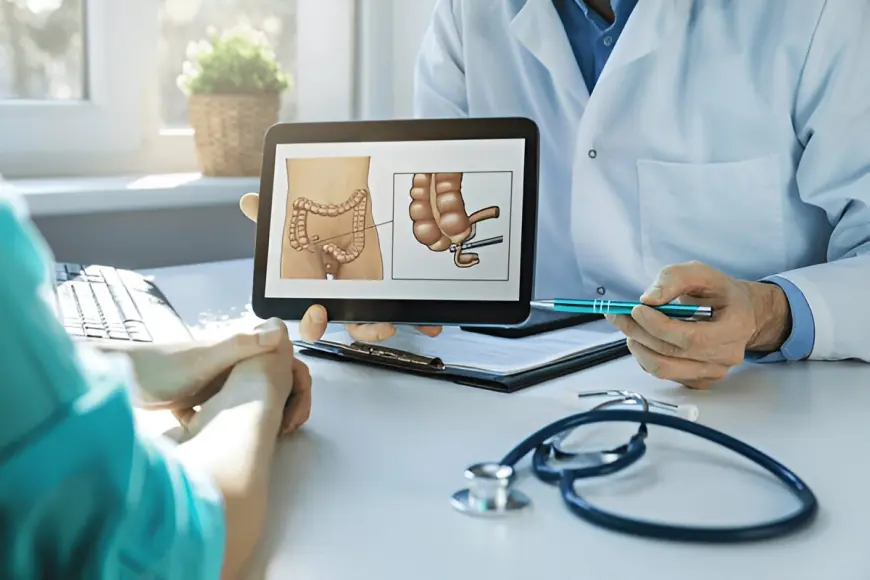How to Identify and Treat the Best Appendix Complications
Timely care and advanced laparoscopic surgery ensure quick recovery from appendix complications with minimal risks.

The appendix, a small, tube-shaped organ attached to the large intestine, is often overlooked until complications arise. While its exact purpose remains unclear, issues such as appendicitis or infections can lead to significant health concerns. Recognizing the symptoms and seeking timely treatment, including the Best Appendix Surgery in Delhi, can prevent severe complications and ensure a swift recovery. This guide will help you identify appendix-related issues and explore effective treatment options
.
Understanding Appendix Complications
Appendix complications primarily arise from appendicitis, which is the inflammation of the appendix. If left untreated, it can lead to serious conditions such as:
-
Perforation: A ruptured appendix can release infectious material into the abdominal cavity, causing peritonitis.
-
Abscess Formation: Pockets of pus may form around the appendix, requiring drainage.
-
Sepsis: A life-threatening infection that spreads throughout the body.
How to Identify Appendix Complications
Recognizing the symptoms of appendix complications is crucial for early intervention. Here are common signs to watch for:
1. Pain in the Abdomen
-
Sharp pain starting around the belly button and shifting to the lower right abdomen.
-
Pain intensifies with movement, coughing, or pressing the area.
2. Digestive Issues
-
Nausea, vomiting, and loss of appetite.
-
Inability to pass gas or irregular bowel movements.
3. Fever and Chills
-
Low-grade fever that may worsen as the condition progresses.
-
Accompanied by chills or sweating.
4. Swelling and Tenderness
-
The lower right abdomen may appear swollen or feel tender to touch.
5. Changes in Urination
-
Painful or frequent urination, especially if the appendix is close to the bladder.
If you or a loved one experience these symptoms, consult a healthcare provider immediately to confirm the diagnosis.
Diagnostic Methods
Accurate diagnosis is essential for effective treatment. Common diagnostic procedures include:
-
Physical Examination: Doctors check for tenderness, swelling, and rigidity in the abdomen.
-
Imaging Tests: Ultrasounds, CT scans, or MRIs provide detailed images of the appendix.
-
Blood Tests: Elevated white blood cell counts indicate infection or inflammation.
Treatment Options for Appendix Complications
Treatment varies depending on the severity of the condition. Options include:
1. Medications
-
Antibiotics may be prescribed to reduce infection and inflammation, especially in mild cases.
-
Pain relievers and anti-nausea medications provide symptom relief.
2. Appendectomy
-
The surgical removal of the appendix is the most effective treatment for appendicitis.
-
Best Appendix Surgery in Delhi offers minimally invasive laparoscopic procedures, ensuring quick recovery and reduced risk of complications.
3. Drainage of Abscesses
-
If abscesses form, they are drained before surgery to minimize infection risk.
4. Management of Ruptured Appendix
-
In cases of rupture, emergency surgery and intensive care may be required to treat peritonitis or sepsis.
Advanced Techniques in Appendix Surgery
Modern advancements in appendix surgery have revolutionized how complications are treated, ensuring quicker recovery and reduced risks. Minimally invasive laparoscopic techniques have become the gold standard, allowing for smaller incisions, less pain, and faster healing. Surgeons now utilize advanced imaging technology during procedures to enhance precision and minimize the chance of infection or post-surgical complications.
Additionally, innovations in post-operative care have significantly improved patient outcomes. Enhanced recovery protocols focus on managing pain effectively, reducing hospital stays, and getting patients back to their daily routines sooner. By staying updated with these advancements, patients can benefit from the latest in surgical care and experience a smoother recovery journey.
Recovery from appendix surgery typically takes a few weeks, depending on the procedure. Here are some tips to ensure a smooth recovery:
-
Follow Post-Surgery Instructions: Adhere to your doctor’s advice regarding medication, wound care, and physical activity.
-
Maintain a Healthy Diet: Include easy-to-digest foods and stay hydrated to aid healing.
-
Avoid Strenuous Activities: Rest and limit heavy lifting or intense exercise during recovery.
-
Attend Follow-Up Appointments: Regular check-ups ensure the wound is healing properly and no complications arise.
Preventing Appendix Complications
While it’s impossible to completely prevent appendicitis, adopting healthy habits can lower your risk of complications:
-
Eat a High-Fiber Diet: Fruits, vegetables, and whole grains promote digestive health.
-
Stay Hydrated: Adequate water intake prevents constipation, reducing pressure on the digestive system.
-
Regular Medical Check-Ups: Periodic health assessments can detect potential issues early.
Conclusion
Appendix complications can escalate quickly, but timely intervention and the right treatment ensure a full recovery. Recognizing symptoms and consulting experts for Best Appendix Surgery in Delhi is the first step toward optimal health. With advanced medical care and experienced professionals, Delhi offers unparalleled solutions for appendix-related issues. Take charge of your health today and prioritize early diagnosis and treatment for a healthier tomorrow.

 nikkibhankad
nikkibhankad 










